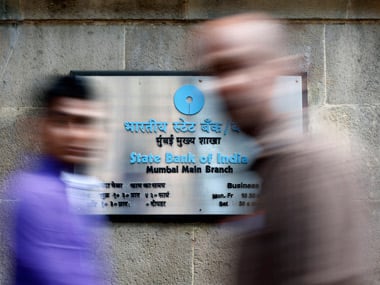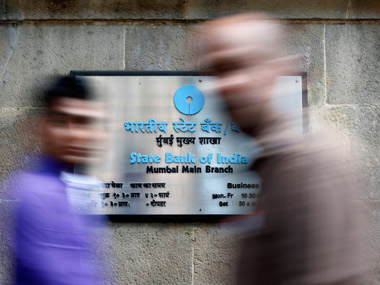State Bank of India (SBI), the country’s largest lender by assets, is determined to classify Kingfisher Airlines and its promoter Vijay Mallya as wilful defaulters at the earliest even as the liquor baron continues to take on the lenders in court rooms seeking legal protection on the matter, a top SBI official said. A wilful defaulter is a borrower who does not pay back money to the bank even if he has the capacity to do so. Typically, such a scenario arises either due to the diversion of funds from the intended purpose or a case of financial fraud. Once a borrower is tagged as wilful defaulter, the company, its promoters or directors, cannot access the financial system or take charge of operations in any other companies. [caption id=“attachment_2041597” align=“alignleft” width=“380”]  Reuters[/caption] SBI had first issued a wilful defaulter notice to Kingfisher in September but since then Mallya has moved to courts seeking legal intervention, the SBI official, in charge of Kingfisher loan account, told Firstpost. “The process of tagging Kingfisher as wilful defaulter is currently on. The whole issue is something between the lender and the borrower and hence legal representation on this matter is not warranted. Still, since Mallya has filed a case, we will reciprocate accordingly,” said the official. The case is likely to come up for hearing in the third week of January, the official said. Kingfisher, which owes about Rs 7,000 crore to a clutch of banks, has an exposure of about Rs 2,000 crore to SBI alone, making it the largest lender to the now defunct airline. This includes an interest overdue of about Rs 2,000 crore. SBI is currently in the process of reconstituting the grievance committee authorised to classify an account as wilful defaulter by including two independent directors as members, the official said. At present, the three-member committee comprises of a managing director and two deputy managing directors. “However, the recent guidelines from the Reserve Bank of India (RBI) on this stipulate that two members should be independent directors. Hence we will reconstitute the committee,” the official said. In the face of mounting bad loans on its books, SBI has intensified its fight against wilful defaulters in recent years by tagging a number of companies as wilful defaulters. On the other hand, Kolkata-based United Bank of India (UBI) is also in the process of slapping the wilful defaulter notice on Mallya yet again after the tainted promoter of the grounded airline received a reprieve from the Calcutta High Court on this charge. In December, the court rejected UBI’s action of classifying the grounded Kingfisher Airlines, promoted by Mallya, as a wilful defaulter, on technical grounds. The court had observed that the empowered committee in UBI, which decides the wilful defaulter status of a borrower, had four members instead of the mandated three members under the RBI norms. But the bank is working towards resolving this issue, a UBI official told Firstpost. “We will reconstitute the committee with three members and will again classify Kingfisher Airlines as a wilful defaulter,” the official said. Both bankers quoted in this story spoke on condition of anonymity as they are not authorised to talk to the press. UBI has an exposure of Rs 350 crore to Kingfisher. Rising stress Kingfisher is just one of the many companies, which are categorised as wilful defaulters by other state-run banks include Winsome Diamonds and Jewellery, Zoom Developers, Koutons Retail and Mumbai-based Tayal Group-promoted KSL & Industries. Winsome Diamonds owes Rs 6,500 crore to a clutch of banks including Axis Bank, Canara Bank, Bank of India and Bank of Maharashtra. About Rs 900 crore is balance to PNB going by the information from the bank. Zoom Developers, which owes about Rs 2,600 crore to banks, has an outstanding of Rs 410 crore to the Mumbai-branch of PNB, while Koutons has Rs 88 crore balance. Mumbai-based Tayal group, the former promoters of erstwhile Bank of Rajasthan, which has interests in textile to real estate, has about Rs 2,500 crore to pay back to banks. Total bad loans of India’s 40-listed banks stood at Rs 2.7 lakh crore in September, while total live cases of restructured loans under the corporate debt restructuring (CDR) channel alone stood at Rs 2.6 lakh crore. Besides this, banks also do bilateral recasts. CDR is a facility underwhich banks offer relaxed repayment terms to the troubled borrower, which include reduction in lending rates, elongated repayment period and a repayment holilday (moratorium). Although there is no aggregate figure available for the restructured loan amount under bilateral loan recasts, this chunk is estimated to be equal to that of CDR loans. In the absence of a strong economic recovery, analysts estimate restructured loans to turn bad. This will add to the pain of banks, especially state-run lenders, as banks need to set aside more money to cover such loans, which, in turn, impact their profitability. Under norms, banks need to set aside money to cover stressed loans. As against 0.4 percentage provision for standard loans, a newly restructured loan attracts a provision of 5 percent and a bad loan, if fully goes bad, attracts a provision equal to the loan amount.
SBI is currently in the process of reconstituting the grievance committee authorised to classify an account as wilful defaulter
Advertisement
End of Article


)

)
)
)
)
)
)
)
)



